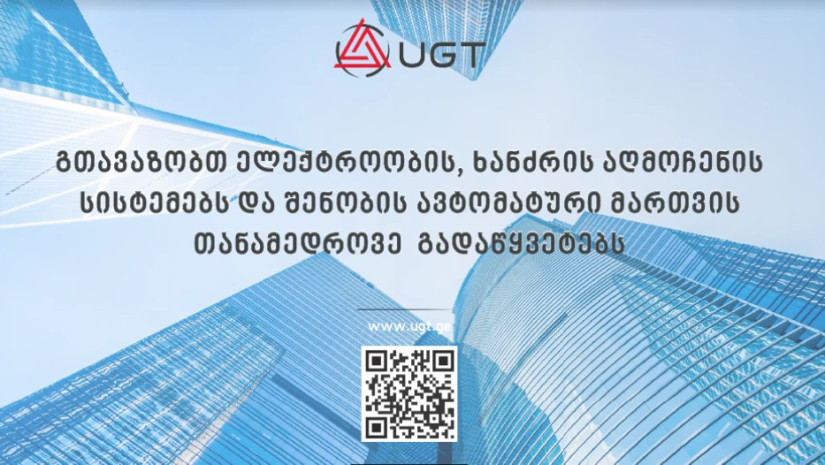UGT, as a leading technology company, has not limited itself to providing only IT services and solutions for the local market and has been developing various technological directions for several years. Among them, the direction of electricity and building management systems has been developing in UGT for 5 years, and in this regard, we talked to Davit Khasia, Technical Director of Electricity and Building Management Systems of the company.
David, please tell us what solutions and services UGT offers to companies in the field of electrical and building management systems?
UGT has been operating in the market for over 25 years. In this period, we always considered the market requirements and developed various technologies within the company. Due to the fact that the pace of construction is increasing in Georgia today, there is a demand for providing services according to the standards. Building management systems integrate power supply, fire detection, public address, access control, video surveillance systems and central building management systems that provide the ability to manage the building from one specific point. We offer our customers services beginning from consultation and ending with design, implementation, installation, programming, and commissioning.
You have already implemented a number of brand hotel projects, what does this mean for your team?
UGT took quite bold steps in the beginning and we directly started cooperation with brand hotels. We implemented Radisson, Hilton, Marriott, and other projects. When we cooperate with such brands, it is important to develop solutions according to international standards, in which our partner manufacturers help us. We cooperate with such vendors as: BOSCH, ABB, Legrand, Schneider, Dormakaba, etc.
What are UGT goals for BMS, what do you want to achieve?
Our aim is to establish the same standards and qualifications in the sphere of electricity and building management systems as we have in IT. It is no longer necessary to mobilize foreign human capital in the sphere of information technology, even in the case of implementation of the most complicated and complex projects in Georgia, and we want to introduce a similar practice in the direction of electricity and building management systems. We want to establish a standard and expertise that meets the needs of every international customer or vendor.
What are your future plans?
In the future, first of all, we plan to actively continue the certifications of engineers in order to be constantly in line with the requirements of leading manufacturers. We are also planning to develop mechanical direction (MEP), which involves the implementation of heating-cooling (HVAC), fire fighting and water supply systems in buildings.












